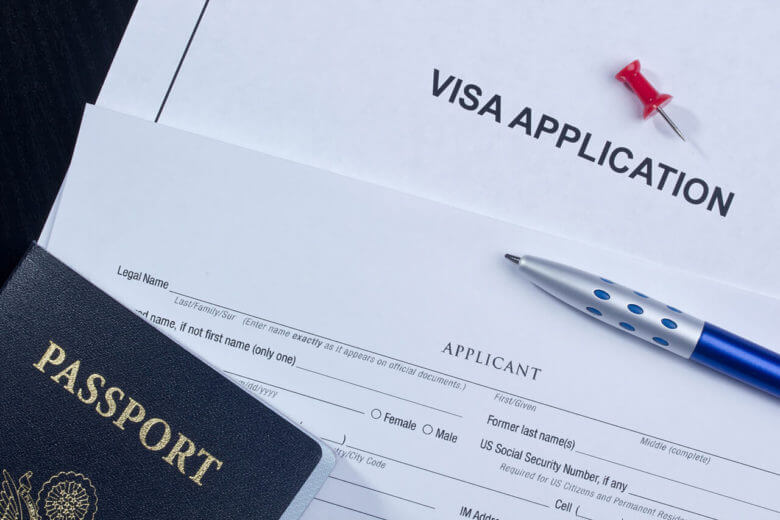

There are so many things to discover when thinking about how to live in another country. According to a State Department study, around ten million Americans are currently living outside the U.S. In pursuit of better education, career opportunities, love, or simply put – in pursuit of happiness – all of them are trying to build a new home for themselves in different corners of the world.
Moving overseas can be a frightening experience since we rarely find ourselves encouraged enough to go through it, maybe only once or twice in a lifetime. That’s precisely why it is vital to be prepared for all the difficulties that might happen on your journey and learn how to make it easier on yourself when it gets tricky. We are here to help you grasp both the practical matters of travel and the emotional ones, too.
Hiring Professional Movers to Help With You With Moving Abroad
Leaving your homeland for good is not a task you should handle all by yourself. However, before hiring an international moving company, compare the relocation rates and services each of them can provide. From the most common ones like professional packing and the basic moving services to professional car shipping if you’re interested in shipping your car overseas. Consider even storage services if needed. Ask your movers whatever you’re not sure about since they are the ones with years of expertise who can always help you with questions like what to pack when relocating overseas, how to tackle relocating with your cat, or if you are relocating with dogs.

Meeting Different Obstacles Depending on the Reasons to Leave Your Homeland
For one thing, how to move abroad will indeed depend on your reasons to move, as well as your choice of destination. The stories will go quite differently for, let’s say, person A who gets transferred for a job to the other side of the world by their U.S. employer and person B who decides to move overseas alone in search of a better life or relocate abroad for love.
The first one will have a lot on their mind, but not nearly as much as the second one. When the responsibility for all the paperwork, documents needed to travel abroad, visas, and salary doesn’t fall on your shoulders, the whole process seems simple. There will probably be some questions to ask the employer since they’ll be responsible for all technicalities.
Is Relocating Doable With No Money in Your Pockets?
What if you happen to be person B and you’re wondering Can you move to another country without a job? Better brace yourself then, because it can get pretty stressful. In this case, arm yourself with your competencies and patience and start the job hunt as soon as possible. Many countries regulate immigration differently when living overseas, but most of them require a contract from a local company for a legal stay. Exploring the local job market or looking for part-time jobs may be good starting points when you find yourself in an unfamiliar land.

How Can I Legally Live in Another Country?
The truth is that half of your relocating abroad checklist will be about the paperwork and documentation needed. However, remember that U.S. citizens are not obligated to apply for a work visa or a residence permit before the move if they decide to go to New Zealand, Australia, Canada, most South American countries, or if they choose any of the EU countries to reside in. Entering those countries first and applying in the U.S. consulate for the needed visa or a permit is a mitigating circumstance when it comes to international moving. Unfortunately, some of the best destinations abroad, such as Asia and Africa, which are so loved among expats, require you to have all the paperwork done before you even move from your homeland.
Getting a permanent residence doesn’t mean the same as citizenship. Fulfilling some requirements only gets you qualified for the first one: clean criminal record, residence for at least a year, language exam, regular work, and monthly earnings, etc. In most nations, you have to be a permanent resident for at least five years before you can apply for citizenship.

What Is the Easiest Country to Immigrate To?
There are various deciding factors when talking about immigration to your future homeland. But let’s face it, even some of the friendliest countries or even the best places for living abroad with family have strict regulations and extensive bureaucracy, which doesn’t make them very convenient to deal with. Then again, your preferences are worth fighting for, aren’t they?
We prepared for you a shortlist of the countries where U.S. expat communities are in full bloom:
- Australia
- New Zealand
- Mexico
- Canada
- Vietnam
- South Korea
- Scandinavian nations
This doesn’t mean you can’t try relocating to Argentina or being brave enough and try moving to Bangkok. Your adventurous desire to experience the world can be satisfied in ways other than living in exotic locations. An alternative lifestyle is undoubtedly one of them, especially nowadays. As a digital nomad with an entrepreneurial on-the-go mentality, spending your days in a traditional office won’t be your first choice for sure. Still, do you think it’s possible to live without any money out there? What would it look like to get the answer to the question: “Can I live in another country for free? ” Global organizations like WWOOF seem to make it manageable. By volunteering on organic farms, you earn housing and free meals. The same goes for Workaway. There is always Couchsurfing, a global hospitality exchange service, where a million locals are offering their place to stay without spending a penny. A fantastic way to meet people and make lifelong friendships.
Making a bucket list for the places you would like to travel to is challenging. However, if you want to simplify it a bit, watch the video below for some of the best places to retire in Europe.

Get Ready for Big Changes
For a fresh expat, the most manageable tasks can seem frustrating and overwhelming, at least at the beginning. Navigating and understanding not only a different culture but yourself within it, as well, will surely be one of the best opportunities for self-growth. As the phrase itself suggests, foreign lands are not familiar to us. Their local customs or anything they do might appear strange at first. But this is all just part of the culture shock you’re experiencing, which affects every expat in some way, and then it leaves them without even noticing.

Tips on Fitting In
Cultural intelligence is the one responsible for making your journey exciting and worthwhile. Learning you can have a life so much different than the one you are used to should keep your mind open and curiosity ever-active. Your sense of not belonging, not fitting in anywhere, is common and fleeting. Just remember that people are creatures of routine, and you will have your own sooner rather than later. You’ll have work to go to, friends to hang out with, favorite streets to walk on, the usual bars, stores, markets you go to. Everything will fall into place. That’s how the feeling of being home is slowly built — a sense of closeness and intimacy. So don’t be scared to struggle a bit for something you’ll call home.
Making New Friends
Making new connections is highly important for an expat. Even though it might be challenging, putting yourself out there is a crucial part of integrating into the community. What’s more, it’s so rewarding that you won’t be able to remember what you were so anxious about in the first place. Go volunteer, join clubs you’re into, expand your network. Wherever you are, there’s a big probability that the American expat community surrounds you. Just put some effort into finding them. But don’t be afraid to go a bit further and meet some people from your adopted place, too.
Keep in Touch With Loved Ones
Knowing when to ask for support is the key, especially during difficult periods in your life. Although it might be a challenge to keep in touch with friends if you have to deal with different time zones, it will still be worth having that one call in the dead of night because no one else knows how to comfort you or crack you up as they do.
Sign up for a Language Course
If you’ve decided to stay in a place where you don’t know the language, signing up for a language course is a win-win situation. It will help you break the language barrier easier and adjust faster while meeting new people during classes. Even if you want to skip this one and prefer to go to an English-speaking territory, don’t expect it to be the same as yours. There are many dialects, many nuances to get used to, no matter how similar the language might appear at first.
How to Live in Another Country: Look for Support
It’s always wise to look at the bigger picture. Aside from your network, there are millions of Americans who have felt the way you do and now can provide you with some good advice. They are only one click away, chatting on expat forums, writing blogs, and how-to guides. Take some time to find them, and you can start with these:
- The Association of American Residents Overseas (AARO) will give you general info about what it’s like to be an American abroad.
- Expat is not for Americans only but for expatriates of any nationality. It can provide you with specifics about numerous countries and cities, as well as various content from people living outside their homelands.
- Expat Exchange is similar to the previous one but more relevant to Americans.

Health Care Is Crucial for Peace of Mind
Secured health care is also one of the critical aspects when it comes to the quality of life. You probably know well how difficult things might be in the U.S. in the health department. Not only that it’s tremendously expensive but you’re often at the mercy of private insurance. Seeing how things roll somewhere else is a good moment of contemplation. Most countries have a health system that is publicly funded and free for citizens. As a resident, even a foreigner, it might be possible to get it by paying only a certain amount to the public healthcare fund each month. At least it means that visiting a doctor won’t cost you a ridiculous figure.

Opening a New Bank Account and Closing the Old Ones Isn’t the Best Choice When Handling Money Overseas
Our warm recommendation is to keep your current bank account open because it’s a sensible choice. You’ll probably continue making payments while you’re replanting your roots somewhere else, and it will be a way easier to do it with your U.S. bank account. Nobody wants even to imagine the fees and logistic terror that might occur when handling money otherwise. Find out if your bank offers special fee-free services, like no currency transaction fees or the free use of international ATMs.

How to Live in Another Country: Make Yourself at Home
Relocating overseas certainly changes your life profoundly. Maybe it’s hard to see it while it’s happening, but it’s all for the better. Don’t be afraid of trying things and making mistakes. It is the only way to discover where you’re at. Transitioning itself is the biggest challenge and the most thrilling journey because adjusting to a new country means being closer to your new home.








